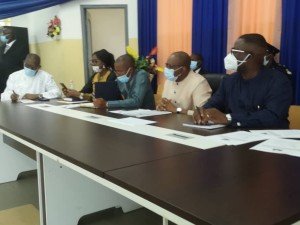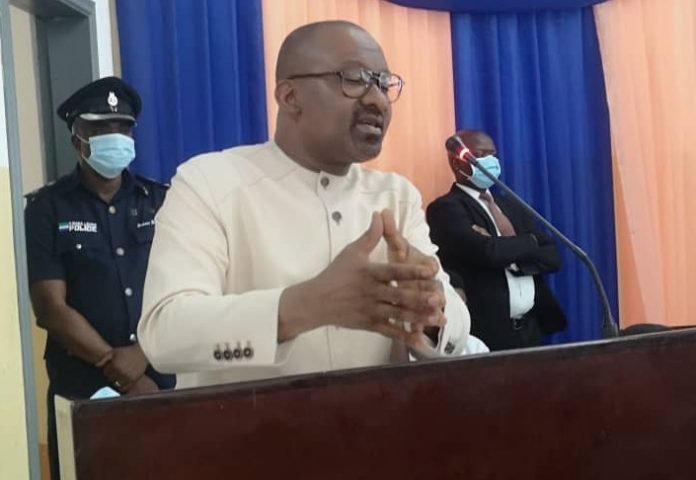By Amin Kef Sesay
Dr. Mohamed Juldeh Jalloh, the Vice President of the Republic of Sierra Leone, has appealed for a ‘national shared solidarity’ while calling on lecturers to return to the classrooms and resume lectures as their welfare concerns are being addressed.
On Tuesday January 19, heads and lecturers from the various higher and technical public education institutions across Sierra Leone converged at Fourah Bay College (FBC) on the invitation of the Vice President amidst a strike action that has left the universities and technical institutions shut down.
Following a day-long dialogue, the protesting lecturers representatives agreed to summon a meeting of their general membership to discuss and consider the fruitful resolutions that emanated from the engagement.
Consequently, the lecturers are expected to soon return to the classrooms following the establishment of a 14-man committee comprising senior Government functionaries and representatives of the aggrieved striking lecturers.
The committee consisting Minister of State in the Office of the Vice President, Ministries of Labour, Finance, Technical and Higher Education, Council of Vice Chancellors and Principals, Civil Society, Tertiary Education Commission, representatives from the various Academic Staff Associations (ASA) and Pro-Chancellors is scheduled to resume work next Tuesday.
The academic staff associations of the nation’s public universities were provided the platform to openly and frankly engage the Government of Sierra Leone through the Vice President in a bid to map out a sustainable and clearly defined roadmap to address the plethora of concerns from the lecturers that have been left unaddressed for at least a decade.
In his statement, the VP pointed out that the Government prioritises the welfare of the lecturers as evident in the inclusion of 25% salary increment in the 2021 budget. This, he said, is in addition to countless unprecedented interventions including pumping of billions of Leones over the years towards salaries, subventions and other supports.
The Government, he said, has also increased the public universities staff strength from 2,844 in 2019 to 3,189 by the end of 2020.
VP Jalloh reminded the lecturers of the consistency on the part of Government to pay their salaries on time since the brand new direction Government took over power.
He re-echoed that it is Government’s responsibility to ensure viable accountability systems at public institutions while calling on the university administrations to judiciously utilise Government subventions for the growth of the institutions.
“This Government has undoubtedly showcased itself as a Government of human capital development,” he pointed out, while assuring the lecturers that they form a major part of the President’s development agenda.
He disclosed that modalities are well advanced to establish the game changer education development fund that will support infrastructural transformation and access to funds for research purposes among other supports.
He appealed to the lecturers to return to the classrooms while their welfare concerns are being addressed, reminding them that we are at an extra ordinary period with the country losing some 1.5 Trillion Leones in 2020 due to Covid-19.
On his part, the Minister of Labour, Alpha Timbo described the concerns of the lecturers as legitimate.
According to him, it is almost ten (10) years now since the conditions of service of lecturers were last reviewed in 2011.
The Minister also pointed out that the lecturers should have started this fight for their rights in 2013, 2016 ad 2019 when fresh reviews were due.
He, however, assured them that despite the advocacy delay, the brand new direction government is committed to fixing the problems.
Earlier, President of Academic Staff Association, Fourah Bay College (FBC), Dr. Williette James highlighted serious and critical welfare concerns that have been hampering the growth of the University for several decades.





